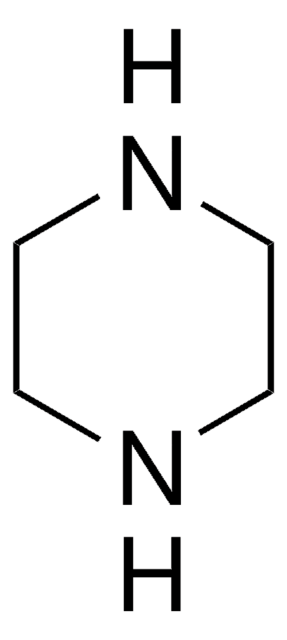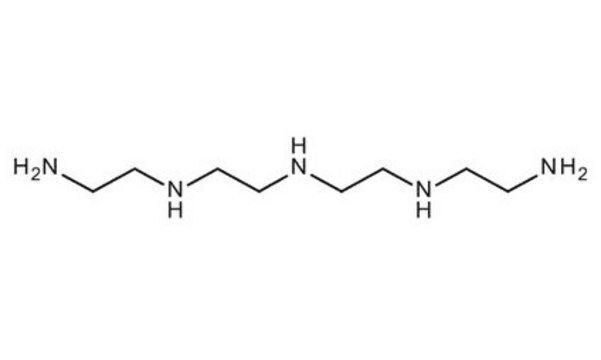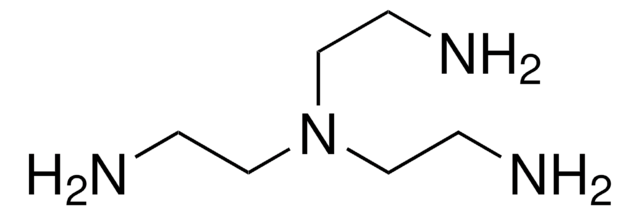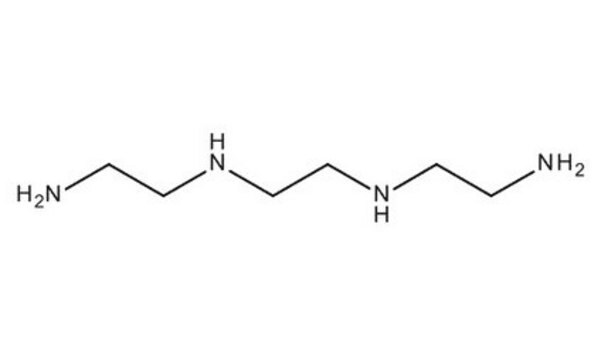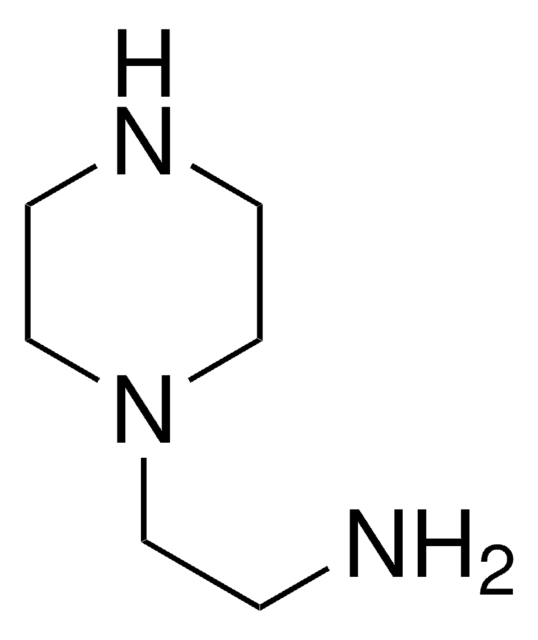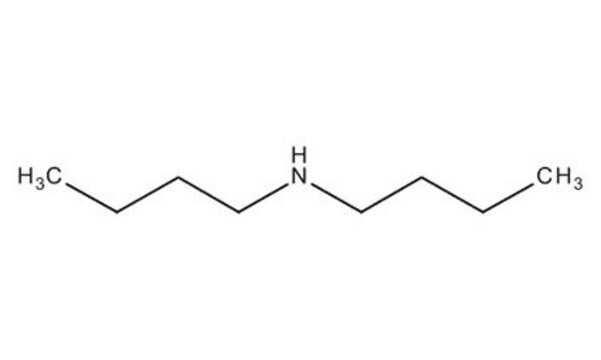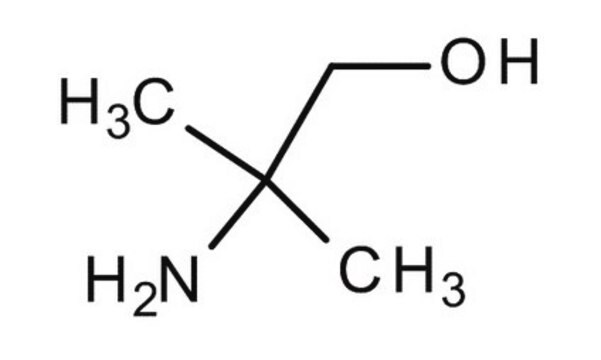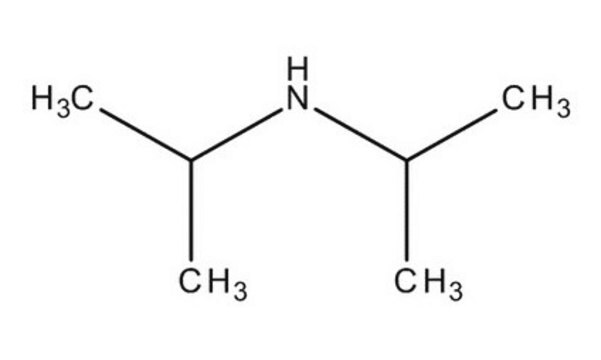8.03274
Diethylenetriamine
for synthesis
Synonym(s):
Diethylenetriamine, 2,2′-Iminobis (ethylamine), Bis(2-aminoethyl)amine, 2,2′-Diaminodiethylamine
About This Item
Recommended Products
vapor pressure
0.2 hPa ( 20 °C)
Quality Level
Assay
≥98% (GC)
form
liquid
autoignition temp.
325 °C
potency
1540 mg/kg LD50, oral (Rat)
expl. lim.
1-10 % (v/v)
pH
>12 (20 °C, 100 g/L in H2O)
kinematic viscosity
7.16 cSt(20 °C)
bp
206-209 °C/1013 hPa
mp
-35 °C
transition temp
flash point 96.7 °C
density
0.95 g/cm3 at 20 °C
storage temp.
2-30°C
InChI
1S/C4H13N3/c5-1-3-7-4-2-6/h7H,1-6H2
InChI key
RPNUMPOLZDHAAY-UHFFFAOYSA-N
Application
- Schiff Base-Based Hydrogel for Wound Healing: Research has developed a hydrogel using Schiff base chemistry embedded with silver nanoparticles capped by a hyaluronic acid-diethylenetriamine derivative, specifically aimed at enhancing wound healing applications. This innovative approach leverages the unique properties of diethylenetriamine in creating effective therapeutic materials (Martorana et al., 2024).
- Photocatalytic Treatment of Wastewater: A study has utilized CdBi(2)S(4)-decorated aminated polyacrylonitrile nanofibers, involving diethylenetriamine, for the photocatalytic treatment of Cr(VI) and tetracycline in wastewater. This application highlights diethylenetriamine′s role in enhancing the environmental cleanup capabilities of photocatalytic materials (Du et al., 2024).
- pH-responsive Drug Delivery Systems: Collagen/functionalized cellulose nanofibril composite aerogels, modified with diethylenetriamine, exhibit pH-responsive characteristics ideal for targeted drug delivery systems. This application demonstrates the versatility of diethylenetriamine in biomedical engineering, particularly in developing responsive delivery vehicles (Yue et al., 2024).
Analysis Note
Density (d 20 °C/ 4 °C): 0.949 - 0.952
Identity (IR): passes test
Signal Word
Danger
Hazard Statements
Precautionary Statements
Hazard Classifications
Acute Tox. 2 Inhalation - Acute Tox. 4 Dermal - Acute Tox. 4 Oral - Eye Dam. 1 - Skin Corr. 1B - Skin Sens. 1B - STOT SE 3
Target Organs
Respiratory system
Storage Class Code
6.1A - Combustible, acute toxic Cat. 1 and 2 / very toxic hazardous materials
WGK
WGK 1
Flash Point(F)
201.2 °F - closed cup
Flash Point(C)
94 °C - closed cup
Certificates of Analysis (COA)
Search for Certificates of Analysis (COA) by entering the products Lot/Batch Number. Lot and Batch Numbers can be found on a product’s label following the words ‘Lot’ or ‘Batch’.
Already Own This Product?
Find documentation for the products that you have recently purchased in the Document Library.
Customers Also Viewed
Our team of scientists has experience in all areas of research including Life Science, Material Science, Chemical Synthesis, Chromatography, Analytical and many others.
Contact Technical Service


